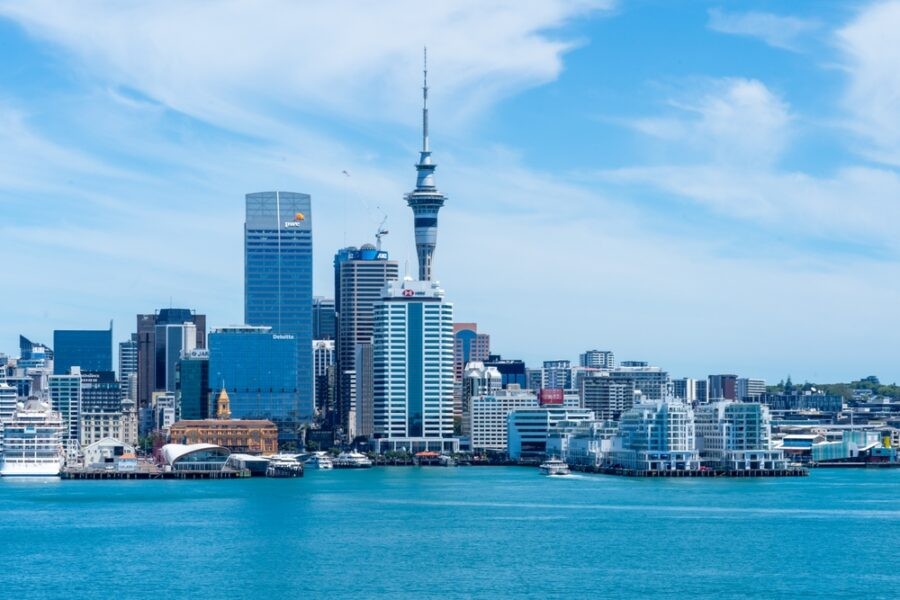New Zealand orders offshore gambling site 20Bet to stop targeting residents

The New Zealand Department of Internal Affairs has formally instructed offshore gambling website 20Bet to stop advertising its services to New Zealand residents, according to RNZ.
This cease-and-desist order comes after New Zealand passed measures in June making it illegal for overseas betting operators to accept bets from inside New Zealand.
The Gambling Act bans the promotion of overseas gambling, and sports betting is only allowed through the country’s sole sports betting agency, Tab.
20Bet is registered in Cyprus but was found to be advertising to New Zealand customers via YouTube advertisements promoting sports betting and slots, featuring slogans such as “taking risks is something that Kiwis like doing.”
The move is part of regulatory action that has included take-down notices issued to influencers promoting offshore online casinos.
“We’re seeing too many of these operators who are just blatantly advertising to New Zealanders despite the fact that it’s illegal,” Andrée Froude, Director of Advocacy for the Problem Gambling Foundation, told RNZ. “I know sometimes the DIA has tried to take action against some of these operators and it’s difficult when they’re based overseas. Hopefully, we will see the advertising stop.”
Charlotte Capewell brings her passion for storytelling and expertise in writing, researching, and the gambling industry to every article she writes. Her specialties include the US gambling industry, regulator legislation, igaming, and more.
Verticals:
Sectors:
Topics:
Dig Deeper
The Backstory
Why a cease-and-desist in New Zealand signals a broader shift
New Zealand’s order for offshore bookmaker 20Bet to stop targeting residents fits a global pattern of tightening oversight on unlicensed gambling. The Department of Internal Affairs acted after lawmakers made it illegal for overseas operators to accept bets from inside the country and reiterated that only the state-backed Tab may offer sports wagering. The agency’s move follows a stream of takedown notices aimed at influencers pushing offshore casinos and a public push from problem gambling advocates to curb ads aimed at Kiwis. The case also underscores a persistent enforcement dilemma: many operators are domiciled abroad, complicating penalties and compliance. Radio New Zealand first reported the directive, detailing ad campaigns that pitched risk-taking to local audiences and promoted slots and sports markets. For background on the government’s intervention, see RNZ’s coverage at Internal Affairs tells gambling website 20Bet to stop targeting New Zealanders.
The New Zealand action reflects a playbook increasingly adopted elsewhere: narrow the legal market to vetted operators, warn intermediaries not to amplify unregulated brands, and remind consumers that refunds and remedies are scarce if disputes arise with offshore books. How other jurisdictions are applying pressure helps explain where New Zealand’s campaign might go next.
Media gatekeepers become regulators’ next line of defense
In Canada’s largest regulated online market, the Alcohol and Gaming Commission of Ontario stepped beyond operator oversight and appealed directly to broadcasters, publishers and platforms to cut off ad inventory for unlicensed sites. In a pointed letter, the regulator singled out Bodog for targeting Ontario while avoiding registration and the mandatory agreement with iGaming Ontario. By asking newsrooms and digital outlets to decline ads, regulators are testing market levers outside traditional enforcement. Read more on AGCO’s appeal to Ontario media to stop promoting unregulated sites.
The Ontario approach previews a path New Zealand could pursue if offshore brands keep popping up on YouTube, social channels or affiliate portals. Rather than chase each operator across jurisdictions, regulators are pressuring ad sellers and distribution networks that are squarely within local reach. The strategy also reframes the issue as corporate responsibility, not just black-letter compliance, by urging media companies to contribute to safer gambling standards.
Impostor casinos and brand hijacking raise consumer stakes
Beyond ad placement, the line between legal and illegal is being blurred by copycat websites. Saskatchewan’s regulator warned that scam ads are spoofing the identities of land-based casinos, steering users toward fraudulent “online versions” that do not exist. Officials stressed that PlayNow.com is the province’s only legal online gambling site and urged residents to report suspicious posts on social platforms. The message is simple: identical logos and familiar images are not proof of legitimacy.
British Columbia’s lottery corporation issued a similar alert, describing scam sites that mimic licensed brands and dangle exclusive promotions unavailable on real platforms. The agency reminded residents to look for verified domains, avoid sharing sensitive data like social insurance numbers and ignore claims of fees or taxes on legitimate prizes. The province emphasized that PlayNow is the sole regulated option in British Columbia, reinforcing a common theme across Canadian provinces. The cross-province alignment is notable because Saskatchewan’s platform is operated by the British Columbia Lottery Corporation under a shared model, creating a larger target for impersonators but also a unified standard for verification.
These alerts matter for New Zealand because they highlight the consumer harm regulators aim to prevent. When unlicensed sites vanish or refuse payouts, users have limited recourse. The more sophisticated the impersonation, the higher the odds that players mistake illegitimate offers for sanctioned ones.
Prevention messaging rises during peak betting windows
The push to contain unregulated gambling is not limited to takedowns and warnings. In the United States, regulators are expanding public education during high-traffic periods. Ahead of the NCAA basketball tournament, Connecticut officials reminded residents to stick to the state’s three licensed sportsbooks and set limits before placing bets. The guidance is as much about channeling demand into vetted markets as it is about harm reduction. See the state’s emphasis on licensed operators and self-exclusion tools in Connecticut’s March Madness safety campaign.
For New Zealand, similar moments arise around major rugby, cricket and football events when offshore sites often step up advertising. Clear consumer messaging, visible signposting of legal options and rapid response to misleading ads are core parts of the playbook that have taken hold in North America.
Global enforcement highlights the scale of illicit networks
While ad policies and consumer advisories are front-line tools, some markets still face entrenched illegal betting networks that rely on apps and distributed agents. In India, police in Goa raided two sites tied to an alleged Indian Premier League betting ring, seizing hundreds of phones, dozens of laptops, banking materials and SIM cards. Authorities said the suspects supported bettors and appeared linked to a wider network operating across multiple regions. The arrests, outlined in Goa police raids on IPL betting operations, underscore how quickly illicit groups can scale via mobile apps and how resource intensive takedowns can be.
The Goa case is a reminder that offshore operators courting New Zealanders are part of a global ecosystem. Even when the activity reaches local screens through legal ad channels, infrastructure, payments and customer acquisition may be orchestrated across borders. That complexity makes cooperation among regulators, platforms and payment providers pivotal.
What to watch as regulators tighten the screws
The New Zealand directive may be the start of a broader campaign that mirrors tactics elsewhere. Expect more pressure on media sellers and affiliates to cut off unlicensed operators, similar to Ontario’s outreach to publishers and platforms. Watch for expanded consumer alerts that name-check common impersonation tactics, akin to recent warnings in Saskatchewan and British Columbia. And during major sporting events, anticipate proactive messaging that routes bettors toward legal options and tools, echoing Connecticut’s preventive approach.
For operators, the stakes are commercial and legal. Ad buys that slip into New Zealand risk takedown orders, reputational damage and blocked payments. For media, the cost-benefit calculus is shifting as regulators frame ad acceptance as a player safety issue. For consumers, clarity on who is licensed, how to verify sites and where to seek redress will determine whether offshore brands continue to find traction. The through line across markets is clear: regulators are narrowing the on-ramps for unlicensed gambling and enlisting intermediaries to help, aiming to make offshore offers harder to find, less trusted and less profitable.






